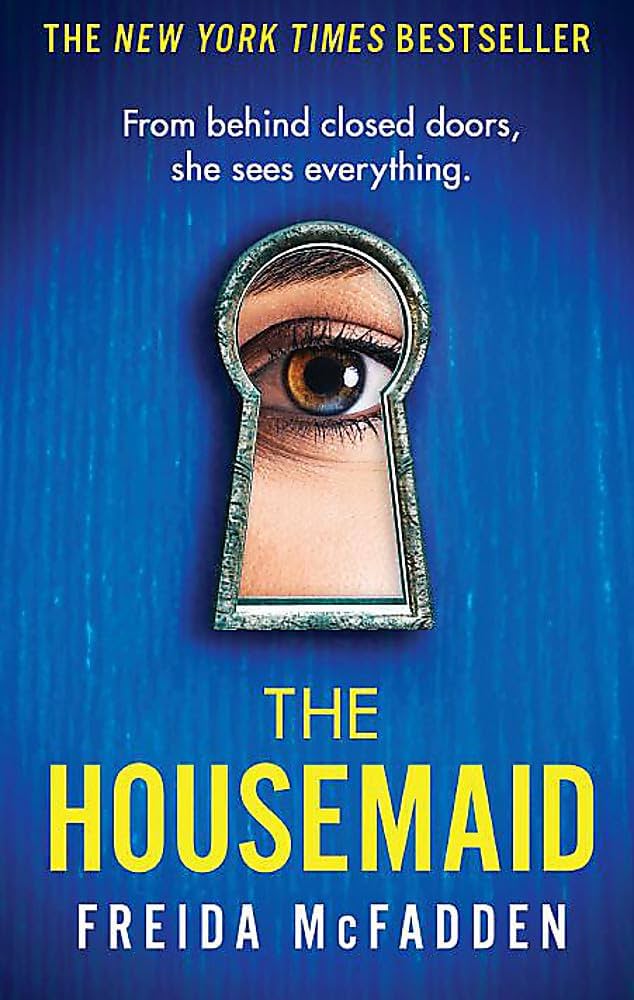Chapter 35
byChapter 35 centers on Millie, who is struggling to find normalcy and independence amidst the complexities of her life. Despite Andrew’s advice to refrain from taking on work for the household, Millie takes small but significant steps toward regaining control. One of the first acts of autonomy she revels in is grocery shopping, a simple activity that she finds liberating, especially when compared to the rigid grocery lists Nina once imposed on her. In the past, Nina’s lists dictated every item Millie bought, restricting her choices and fostering a sense of control that now feels suffocating. Now, free from this constraint, Millie takes pleasure in picking out her own groceries and making decisions that are entirely her own. The sense of freedom she feels in such a mundane task is empowering, marking a sharp contrast to her previous existence under Nina’s watchful eye.
However, her peaceful moment is disrupted when she receives a call from a blocked number—one that has been persistently trying to reach her all day. The call is followed by an unexpected encounter with Patrice, a woman from Nina’s circle, whose seemingly casual conversation soon takes a dark turn. During their discussion, Patrice inadvertently reveals to Millie a chilling fact: Nina has been tracking her movements through a phone app. This revelation completely shocks Millie, as she had only imagined Nina’s control extending to benign actions like reading her text messages, not realizing that Nina had been monitoring her every move so invasively. The discovery of this surveillance deeply unsettles Millie, highlighting the extent of Nina’s power over her life, which she had never fully grasped before.
This chapter skillfully captures Millie’s gradual realization of the depth of Nina’s control. It’s not just about checking her texts or knowing her whereabouts—it’s the fact that Nina’s surveillance has been so thorough and secretive, making Millie feel like her every action has been monitored. Patrice’s seemingly innocent conversation serves as a catalyst for Millie to confront the true nature of her reality. The shock of learning that Nina’s oversight has been more pervasive than she ever imagined forces Millie to question not only the relationship dynamics but also her own sense of agency and independence. What she initially believed were normal, if somewhat controlling, acts of concern, now feel like violations of her privacy and freedom.
As the chapter progresses, Millie begins to process the weight of this new information. The idea that Nina has been spying on her, going so far as to track her movements, creates a sense of violation and unease that Millie cannot easily shake. The psychological toll this discovery takes on her is immense; she feels a mixture of anger, betrayal, and confusion. These emotions are compounded by the realization that she has been living under a constant cloud of surveillance, stripped of the privacy that should have been her right. Millie’s desire for autonomy becomes more urgent as she grapples with the implications of Nina’s control, knowing that to reclaim her life, she must confront these hidden forces that have shaped her reality.
The chapter concludes on a note of introspection, as Millie reflects on her past actions and how they have led her to this point of awareness. The shock of Nina’s invasive behavior serves as a turning point in Millie’s emotional journey, awakening her to the unhealthy dynamics that have dominated her life for so long. Now, she must decide how to navigate the future—whether to confront Nina and take back her freedom or to continue living in the shadow of her manipulation. This newfound awareness forces Millie to acknowledge the uncomfortable truth that she has been living under constant control, and in order to regain her autonomy, she must take action.
This chapter is a powerful exploration of the themes of autonomy, control, and surveillance, which resonate deeply in the context of modern relationships. For anyone experiencing similar forms of emotional manipulation, the chapter highlights the importance of recognizing and addressing controlling behaviors early on. Surveillance, in any form, is a violation of personal privacy, and learning to identify when boundaries have been crossed is essential for mental and emotional well-being. Millie’s journey serves as a crucial reminder of the importance of self-awareness, personal boundaries, and the need to reclaim one’s space and identity from unhealthy relationships. For anyone in a similar situation, this chapter underscores the importance of standing up for yourself and taking the necessary steps to protect your emotional and mental health, even when it means confronting difficult truths.


